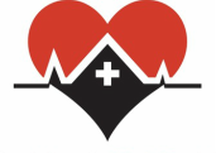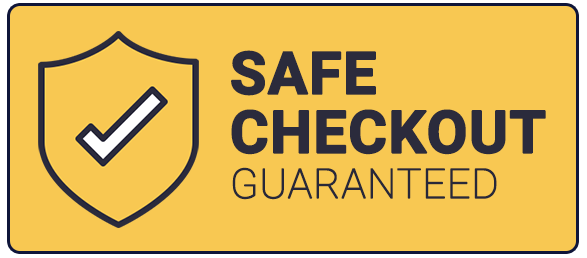DEALING WITH ANXIETY AFTER EMERGENCY!A medical emergency can trigger anxiety and depression for days, weeks, and even months following an incident. If the persio following the trauma or medical emergency is not addressed, it can results in added stress for the individual whether at work, with family, or in daily activities. If you are experiencing anxiety or depression after a medical emergency, it is important to remember that many people in the US suffer from the same condition. Anxiety disorders effect approximately 40 million U.S. adults, and/or approximately 18% of the U.S. population. Anxiety disorders are among the most common mental illnesses, according to the Anxiety and Depression Association of America (ADAA). However, anxiety disorders are treatable, and some of the best ways to deal with anxiety after an emergency include: .1. Relaxation.
After a medical emergency it is often important to relax and take a short break from every day activities to process what happened during the incident. A break may help an individual take a step back from an emergency, clear his or her head and move forward. Simple things can be done such as spending a few minutes practicing yoga or listening to music or planning a weekend getaway or a week-long vacation to help you clear your mind. 2. Nutrition. Th effects of anxiety can plan havoc on eating right and/or even eating at all. It is important to fill your diet with foods that boost energy in order to avoid a potential drop in blood sugar that can cause you to feel jittery. A diet rich in whole grains, vegetables and fruits are ideal. Meanwhile, you should try to avoid simple carbohydrates, limit caffeine and alcohol consumption and stay hydrated. Don’t forget to eat regular meals, too; that way, you can maintain a consistent blood sugar level throughout the day. 3. Physical Fitness. Research has indicated that regular aerobic exercise reduces tension, improves sleep and boosts self-esteem. Additionally, some research has even indicated that just five minutes of aerobic exercise a day can provide anti-anxiety benefits. In addition to helping you build strength, stamina and muscle, exercise enables you to fight off anxiety. If you stay physically active, you’ll be able to reduce fatigue, improve your alertness and concentration and boost your overall cognitive function at the same time. 4. Adequate Sleep. It has been recommend by the National Sleep Foundation (NSF) that adults get at least seven hours of sleep per day. If you allow yourself plenty of time to get adequate sleep, it may be possible to avoid the possibility of post-emergency anxiety. Practicing a relaxing bedtime ritual like reading a book or listening to relaxing music before bed may help you fall asleep. Also, if you exercise daily and avoid naps during the day, you may be able to develop a consistent sleep schedule. 5. Positive Attitude. Maintaining a positive outlook when experiencing anxiety can often seem impossible. However, there are many simple and yet effective ways to remind yourself of all the positive and good things in your life. For example, placing positive notes or quotes throughout your home. These notes will serve as constant reminders of positive things that bring a smile to your face. In addition, it is critical to do something every day that truly makes you happy. 6. Journaling. Writing your thoughts in a journal may be beneficial if you are not quite sure of the source of your anxiety or depression. If you write down your thoughts and feelings, seeing these thoughts on paper may allow you to figure out what exactly is triggering your anxiety. The goal of a journal entry is to allow you to identity the source of your anxiety and then find ways to work through it. Journal entries can be long or short and can written as frequently as you like. If you feel comfortable with writing your thoughts on paper, this can be an extremely effective way to help alleviate the anxiety after experiencing trauma or a medical crisis. Experiencing constant anxiety can be difficult for anyone to work through. However, understanding the source of the anxiety and realizing that it can be dangerous if not addressed can potentially save lives. Although there is not a universal method to overcome anxiety after trauma or a medical emergency, using one or more of the previously mentioned tips may provide adequate coping mechanisms.
Comments
|
AuthorDr. Tracy A. Jones is the CEO of Help-A-Heart CPR, LLC and an American Heart Association, ASHI, and American Red Cross Master Program Trainer, Instructor, & AHA Faculty Member located in San Antonio, Texas. Archives
June 2024
Categories |
Help-A-Heart CPR, LLC | 1747 Citadell Plaza Suite 101 | San Antonio, Texas 78209 | (210) 380-5344 | [email protected]
Copyright © Help-A-Heart CPR, LLC 2024
100% Certification Acceptance
We promise your employer, school, or agency will accept the certification card we issue to you. If there is a question of acceptance or validity, simply send us an email at [email protected] with full details. We will reach out to the individual/entity and provide accreditation information. If still there’s a question, we will provide you with a full refund of your class fee. It’s that simple.
We promise your employer, school, or agency will accept the certification card we issue to you. If there is a question of acceptance or validity, simply send us an email at [email protected] with full details. We will reach out to the individual/entity and provide accreditation information. If still there’s a question, we will provide you with a full refund of your class fee. It’s that simple.
|
Communities Served
ALABAMA: Birmingham
ARKANSAS: Fayetteville, Hot Springs, Jonesboro, Little Rock NEW MEXICO: Albuquerque TENNESSEE: Knoxville TEXAS: Amarillo, Arlington, Austin, Bandera, Bastrop, Boerne, Brownsville, Comfort, Converse, Corpus Christi, Dallas/Ft. Worth, Del Rio, Dripping Springs, El Paso, Floresville, Fredericksburg, Georgetown, Harlingen, Houston, Junction, Katy, Kerrville, Kingsville, Kingwood, Laredo, Lubbock, Lufkin, McAllen, Midland, New Braunfels, Odessa, Pleasanton, Round Rock, San Angelo, San Marcos, Schertz, Seguin, Taylor, Temple, Texarkana, Tyler, Universal City, Victoria, Waco, The Woodlands |
Why Choose Help-A-Heart CPR?
1. Flexible Scheduling
2. On and Off Location Training Available 3. Casual, Fun Atmosphere 4. Best Price Guarantee 5. All Instructors are AHA and/or ARC certified 6. 5 Star Google Reviews 7. Blended Learning (Online & Skills Check) Available 8. Meets OSHA & College CPR Requirements 9. Get Certified Within 3-4 Hours 10.Certification Is Good For Two Years 11. Official AHA/ARC/ASHI Training Site 12. High Quality Safety Training! |








